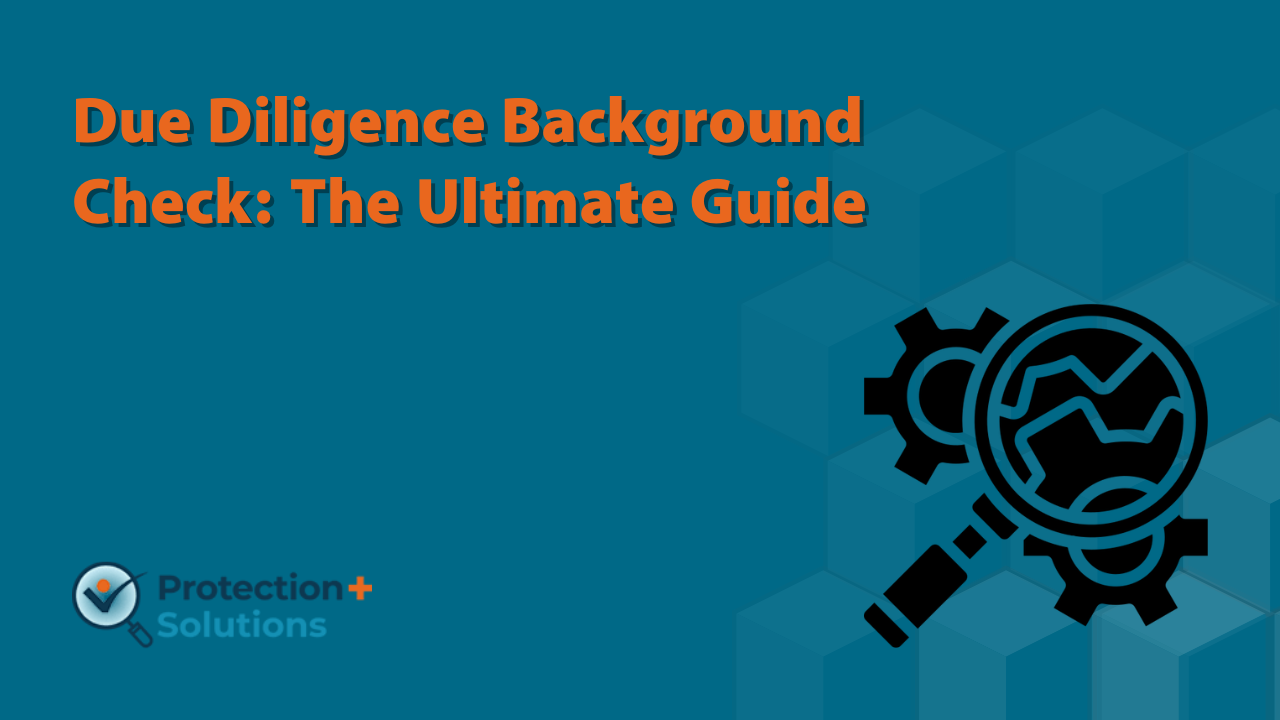Due Diligence Background Check: The Ultimate Guide

What is Due Diligence?
Simple Definition
Due diligence is like doing your homework before making big decisions. It means thoroughly investigating someone or something before agreeing to a deal or employment.
Why is it Important?
Imagine marrying someone without knowing their real name, debts, or past. Due diligence prevents nasty surprises by revealing hidden issues early.
Difference Between Due Diligence and Background Check
Focus and Scope
Due diligence is broad, covering financial, legal, operational, and reputational areas. A background check focuses specifically on personal records and credentials.
When to Use Each
Use background checks for hiring or renting decisions. Use due diligence for mergers, acquisitions, investments, or strategic partnerships.
Types of Due Diligence Background Checks
Employment Due Diligence
Companies check employment history, education, criminal record, and references before offering jobs.
Business Acquisition Due Diligence
Before buying a business, buyers verify finances, legal standings, assets, debts, and reputation.
Tenant Screening Due Diligence
Landlords perform checks to assess if tenants are reliable, financially stable, and have no eviction history.
Vendor Due Diligence
Companies assess suppliers to ensure they are credible, compliant, and financially stable.
Steps to Perform a Due Diligence Background Check
Define Your Purpose
Be clear on why you’re doing the check – for employment, business deal, or renting.
Gather Authorisations
Always get written consent from the person or entity you’re checking to stay compliant with laws.
Choose Reliable Sources
Use reputable background check agencies, government databases, court records, and financial statements.
Analyse and Verify Data
Don’t just collect data – analyse it, cross-check with other sources, and validate accuracy.
Report Findings
Compile a detailed report with clear summaries, evidence, and recommendations for your final decision.
Common Mistakes in Due Diligence Checks
Ignoring Red Flags
Overlooking minor issues can lead to bigger problems later. Always investigate inconsistencies.
Using Inaccurate Data
Using outdated or unverified data can mislead decisions and risk legal action.
Legal Considerations
Consent and Privacy Laws
Never conduct checks without consent. Follow FCRA (Fair Credit Reporting Act) or GDPR depending on jurisdiction.
Adverse Action Notices
If you decide against someone based on their report, inform them with an adverse action notice as legally required.
Tools for Due Diligence Background Checks
Manual Tools
- Public court records
- Official company filings
- Reference calls
- Media and news archives
Automated Software
- TruthFinder
- Intelius
- LexisNexis
- Clearbit for business data
You can also contact PPS for the services and ease up your mind from all the process
How Companies Use Due Diligence Background Checks
For Hiring Decisions
To avoid negligent hiring lawsuits and ensure employees’ integrity aligns with company values.
For Partnerships and Mergers
To confirm partners are financially strong, legally compliant, and reputable before sealing multimillion-dollar deals.
Benefits of Conducting Thorough Checks
Minimising Risk
Prevents fraud, legal trouble, and loss of assets by revealing threats beforehand.
Enhancing Trust
Shows clients, employees, and partners that you value safety and compliance.
Challenges Faced During Checks
Data Limitations
Sometimes data is outdated, inaccessible, or incomplete due to privacy restrictions.
Time Constraints
Proper due diligence takes time. Rushing leads to errors and overlooked details.
Best Practices for Effective Checks
Stay Updated with Laws
Background check laws change regularly. Keep policies updated to avoid penalties.
Maintain Confidentiality
Always protect the privacy of individuals and businesses during and after the process.
Future Trends in Due Diligence Background Checks
AI Integration
AI tools are automating data collection and analysis, making checks faster and smarter.
Real-Time Monitoring
Continuous background checks will replace one-time reports to flag risks immediately.
Conclusion
Due diligence background checks are non-negotiable if you want to make smart, safe decisions in hiring, partnerships, investments, or rentals. It’s like having a safety net before jumping into any agreement. Don’t skip it – the risks are too high, and the rewards of being thorough are priceless.

